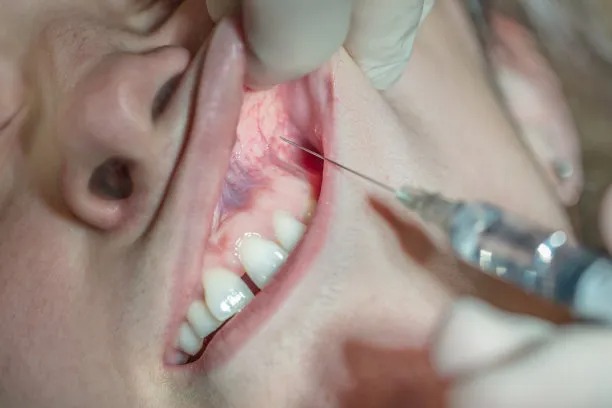Summary: Dental implantation is a highly effective procedure for replacing lost teeth, enhancing both function and aesthetics. However, ensuring a successful implementation involves following essential precautions and guidelines throughout the procedure and recovery process. This article discusses four critical aspects that can significantly impact the success of dental implantation: pre-operative preparations, surgical procedures, post-operative care, and long-term maintenance. Each section provides valuable insights aimed at patients and dental professionals alike, ensuring that the entire process runs smoothly and minimizes complications.
1. Pre-operative Preparations for Dental Implants

Proper pre-operative preparations are essential for the success of dental implantation. This phase begins with a comprehensive evaluation by the dental professional. During this evaluation, the dentist will assess the patients oral and overall health, including taking X-rays and possibly CT scans to plan the implant placement accurately. Understanding the patients medical history is crucial in identifying any potential risks that could affect the procedure.
Once the dentist concludes that the patient is a suitable candidate for dental implants, a treatment plan will be established. This plan should outline the specific type of implant, the number of implants needed, and the estimated duration of the whole process. Patients are encouraged to ask questions and clear any doubts regarding the procedure, so they feel more at ease.
Additionally, dental professionals may advise patients on necessary lifestyle changes prior to surgery, such as quitting smoking or adjusting current medications. These factors can significantly influence the healing process and implant success rates.
2. Surgical Procedures for Dental Implants
The surgical procedure itself is a critical phase in the dental implantation process. The procedure typically involves several steps, including the placement of the titanium post into the jawbone. This phase requires precision to ensure the implant is correctly positioned to support the artificial tooth.
During the surgery, local anesthesia or sedation may be administered to minimize discomfort. Surgeons must follow strict aseptic techniques to reduce the risk of infections, which are one of the most significant complications following the procedure. After placing the implant, the gum tissue is carefully stitched back to facilitate healing.
Moreover, the duration of the surgical procedure can vary based on the complexity of the case. It is essential that patients adhere to their dentists instructions regarding post-operative care to ensure unhindered healing and avoid complications.
3. Post-operative Care Guidelines
Post-operative care plays a vital role in the recovery and long-term success of dental implants. After surgery, patients may experience swelling and discomfort, which can be managed effectively with prescribed medications. Following the dentists advice on when to resume normal activities is crucial for avoiding complications and facilitating proper healing.
Patients should also pay close attention to their oral hygiene post-surgery. Maintaining proper dental hygiene helps prevent infections and promotes healing of the gum tissue around the implant. Gentle brushing and the use of prescribed mouth rinses can aid in keeping the surgical site clean.
Follow-up appointments with the dental professional are necessary to monitor the healing process and to allow for adjustments if needed. These visits are critical to ensure that the implant is integrating well with the jawbone, known as osseointegration, a key factor in the implant’s long-term success.
4. Long-term Maintenance of Dental Implants
Long-term maintenance is essential to ensure the longevity of dental implants. Regular dental check-ups allow professionals to monitor implant integrity and overall oral health. Maintaining a schedule for these visits ensures that any potential issues are detected early and addressed promptly.
Moreover, patients need to continue practicing good oral hygiene at home. This includes regular brushing and flossing of the implant area, as well as using specialized cleaning devices if necessary. Its also advisable to avoid harmful habits such as teeth grinding or excessive biting on hard objects, which can jeopardize the implant’s stability.
Staying aware of dietary choices is another aspect of implant maintenance. Consuming a balanced diet that supports oral health can prolong the life of dental implants and promote overall well-being. Educating oneself about the necessary lifestyle changes and adopt practices that reinforce implant care is vital for long-term success.
Summary:
When considering dental implantation, various precautions and guidelines must be followed to achieve successful results. From thorough pre-operative preparations and meticulous surgical practices to dedicated post-operative care and ongoing maintenance, each phase of the process dramatically impacts the effectiveness and longevity of dental implants.
Prioritizing these aspects supports not only the immediate success of the procedure but also enhances the overall dental health of patients in the long run. By adhering to established guidelines, both dental professionals and their patients can collaborate to achieve optimal outcomes.
This article is compiled by Vickong Dental and the content is for reference only
Vickong Dental
Vickong Dental is a large medical group established in Hong Kong in 2008 by professors from well-known medical universities in Guangdong and Hong Kong, as well as medical doctors from key national '985' universities (including Master's supervisors and senior professors). The chain of branches brings together expert dentists with PhDs and Master's degrees from Hong Kong and Mainland China, committed to providing high-quality dental treatment.
"Vickong Dental Practices the University Motto of 'Healing and Serving Society,' with a Stable Operation for Sixteen Years. It Has Been honored with Hong Kong Enterprise Leaders's Choice,' and is a Global Trusted Implant Center for the Nobel Implant System. Recommended by Hong Kong Metro Broadcast and Guangdong Television, it Serves Customers from Over Thirty Countries and Regions, Gaining the Trust and Favor of Citizens from the Guangdong-Hong Kong-Macau Greater Bay Area and Surrounding Cities.

Thousands of customers' unanimous praise
The most recognized and highly recommended dental service by customers in the Guangdong-Hong Kong-Macau Greater Bay Area
We Ensure You Receive Detailed Care and Attention Here
Hong Kong standards, Shenzhen prices, Your Trusted English-speaking dentists

Vickong Dental Medical-Grade Instrument Disinfection Process
Vickong Dental Medical-Grade Instrument Disinfection Process

Vickong Dental Chain: A Warm and Comfortable Environment for Treatment






Appointment Hours

Q&A
Why choose Vickong Dental?
Vickong Dental practices the university motto 「Medicine to Benefit Society」, with each branch bringing together highly qualified dentists with doctoral and master’s degrees from Hong Kong and the Mainland, and has maintained seventeen years of steady operation。Recipient of 「2024 Hong Kong Enterprise Leaders Brand」, 「2025 Hong Kong Enterprise Leaders Brand」, a Nobel Biocare Global Trusted Implant Center, and a brand recommended by Metro Radio Hong Kong and Guangdong TV。
To date, we have served customers from more than thirty countries and regions,earning exceptionally high word-of-mouth recognition and trusted recommendations from residents across the Guangdong-Hong Kong-Macao Greater Bay Area and surrounding cities
We have eight major branches in Zhuhai、Shenzhen,and a consultation and service assurance center in Hong Kong,so you can book a free consultation at any time for any questions,which is very reassuring.
If I do not accept the quotation after the CT scan, will I be charged??
No! As long as the actual treatment has not started, you will not be charged any fees.
Will there be any additional charges during the treatment process?
No, there won’t be any additional charges. Before treatment begins, we will clearly explain the treatment plan and its corresponding fees. Only after the patient agrees and signs the consent form will we proceed with the dental service.
Can I pay in Hong Kong dollars?
Yes. Vickong Dental accepts payment in Hong Kong dollars. The amount will be converted based on the exchange rate of the day, and the applicable rate will be clearly communicated to you in advance.
Can I reschedule my appointment at any time?
Yes. Please contact us via **WeChat** or **WhatsApp** as early as possible, providing your original appointment time and details, along with your preferred new date and time slot for rescheduling.













